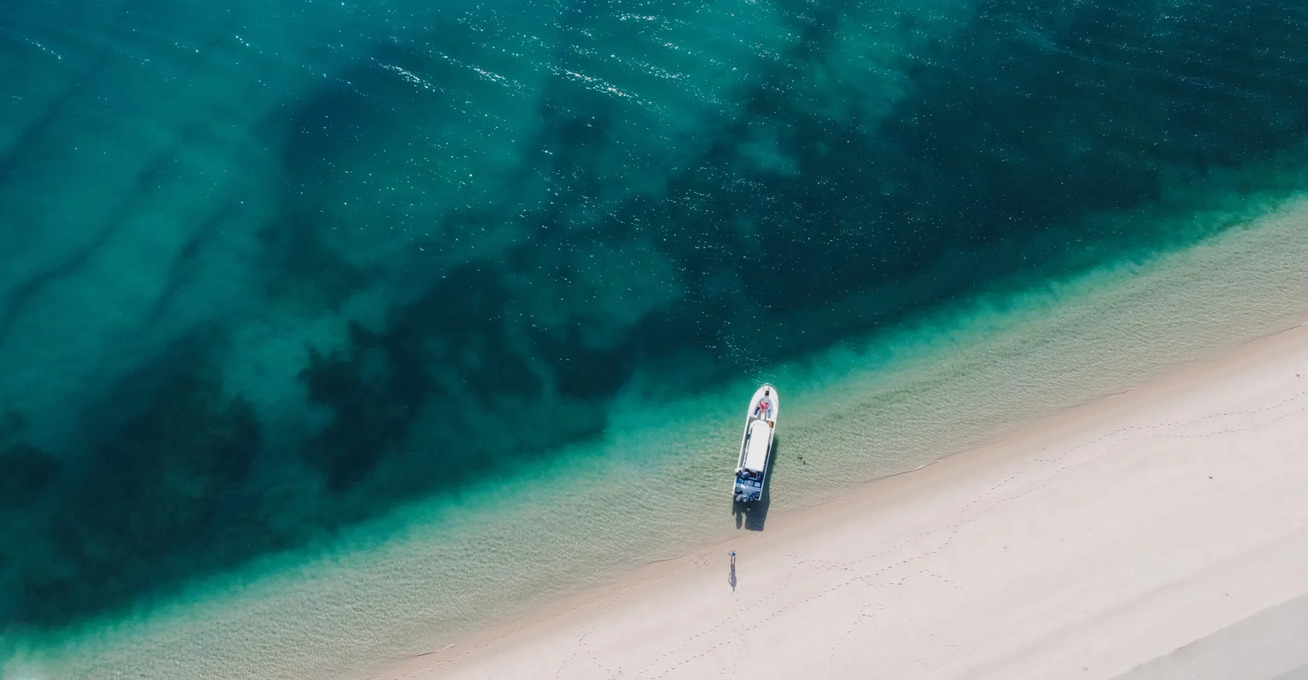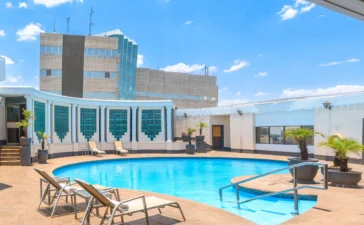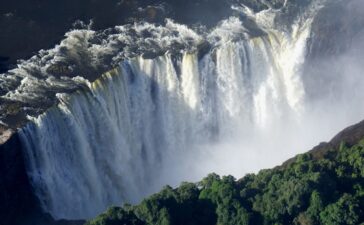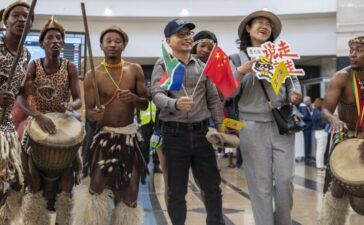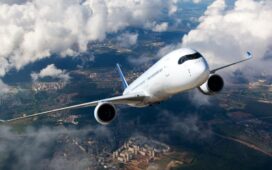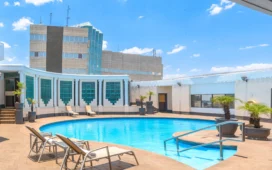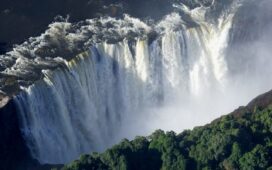Recently updated on March 27th, 2024 at 01:37 am
Nacala is a small town serving the deepest natural port on the east coast of Africa. It also happens to sit on a major strategic 981km railway – on the Nacala Development Corridor – which stretches from Nacala to Malawi. The region is also being developed into a special economic zone and construction on the port is still ongoing. Although currently home to just over 200,000 people, this little town is quietly undergoing an economic transformation.
Getting there and away
Nacala is served by Mozambique’s most modern airport. It was designed by the Brazilian company Odebrecht and inaugurated with much fanfare in December 2014. However, the only airline currently making scheduled flights to Nacala is Mozambique Airlines (LAM), and only to and from Maputo. However, plans are underfoot to restructure the publicly-owned airport. To get into town, car hire services, such as Sixt and Europcar, are available. The airport is about 10km from the city. If you’d prefer a shuttle, make sure to check with your hotels ahead of time what services are offered.
Getting around
With its new airport, strategic port and railway systems, Nacala is becoming quite a transport hub. However, roads in the town are not all up to scratch so do take care, especially during periods of rain. Hiring a car is probably your best option as public transport options are limited. There are “chapas” (private minibuses) that run around town and down to the port but, otherwise, check with your hotel what options can be arranged. Nacala is also easily walkable with many districts within good distance of each other.
Where to stay
Nacala Plaza Business Design Hotel is a bit of a mouthful but is definitely one of the best hotels in Nacala. The food is excellent, the service commendable and the best part is that the rates are reasonable. The Afrin Nacala Hotel has a fully equipped conferencing centre and is located in the city centre with easy access to the business district and the port. If mixing leisure with business is more your style, try Casa de Hospedes Muzuane; a B&B run by vocational students. It’s only a short walk from the beach and just 10km from town.
Eating out
For the best pizza in Nacala, you can’t go wrong with Libelula Restaurant. Perched on the edge of some very scenic cliffs, the meat and vegetarian dishes are cooked to perfection and the fish is the stuff of legends. After lunch you can also take a walk down to the beach and visit the beach bar. O Barqueiro Beach Bar Restaurant is situated right on the beach and good food, good drinks and amazing sunsets can all be had here. The lobster, calamari and shrimp are a must. There is no better place to relax than The Thirsty Whale, attached to Kwalala Lodge. It offers a range of international beers to be enjoyed on the veranda, preferably with your feet up.
Nightlife
Nacala’s social life tends to be very quiet but although it has a pretty sedate vibe, it is still a port and expat-rich town, which means that a good time can definitely be found at night. Lounge Villa Verde is a bar/club which hosts local and international DJs, as does Naherenque Lodge. Baía Azul Restaurante & Barpub hosts great outdoor street parties. If that’s not your speed, there is any number of sports bars attached to some of the hotels. These include Hotel Maiaia and the Guinjata Bay Resort sports bar.
In the city
Nacala is known for its beaches and scuba diving and Moz Adventures Nacala is an absolute must to fill your time there. They offer everything from whale watching, scuba diving and fishing to kayaking, snorkelling and wake boarding. Decent prices and tailor-made packages, not to mention great staff, will ensure you are never bored. If something more restful is in order, the Cathedral of Nacala is a beautiful church surrounded by pleasant greenery and is good for a quiet, introspective stroll.
Shopping
Fresh produce and fruit can be procured from local markets while Estúdio Criativo Nacala is a good place to look for locally-made crafts and souvenirs. For essentials, the VIP Supermercado is part of the Spar Group so you will find everything you need here. Credit cards are widely accepted across Mozambique although Visa cards tend to be more effective.
Out of the city
Although its isolation has ensured its relative anonymity, the nearby town of Pemba is growing in popularity as a tourist destination. It is renowned for its Portuguese colonial architecture as well as its water sports and diving opportunities. A coral reef lies close to shore. Also in the same province (Nampula), Ilha de Mozambique (Mozambique Island) is one of Africa’s most significant historical sites. It was the capital of Mozambique for almost four centuries under Portuguese colonisation and was a major trading base for Arab traders since the eighth century. It’s a UNESCO World Heritage Site and is connected to the mainland by a concrete bridge.
History and culture
Thanks to its deepwater port, Nacala was developed as an industrial, agricultural and exporting centre under the Portuguese during its last period of rule (ending in the 1970s). Over the last decade, the port has been identified as a strategic alternative to Beira for the exportation of coal and has since taken on an even greater economic significance. As a result, the whole region is under development. There are many ethnic groups that make up the people in Nacala. These include those of Chewa, Nyanja, Tumbulo, Yao, Sena, Tonga, Asian, European and Ngonde descent. The prevailing religions are Christianity and Islam and the official languages are Chichewa and English.
Health and safety
Mozambique is a relatively low-risk country to travel in. The biggest complaint from tourists is extortive interactions with some members of the police. Just make sure to have your passport on you at all times or a notarised copy of your passport and visa. There is also a lot of poverty so petty theft (mostly from travellers’ accommodation) is a reality. Make sure to lock up your valuables and be sensible when moving around at night. The risk for Malaria is high all year round so precautions are essential. It also gets blisteringly hot, so make sure you have plenty of sun protection and water.

